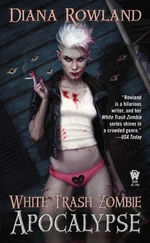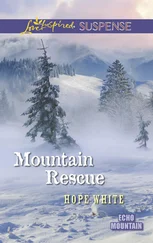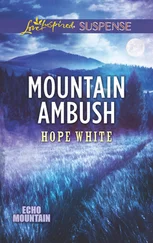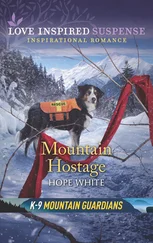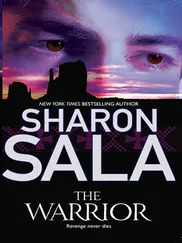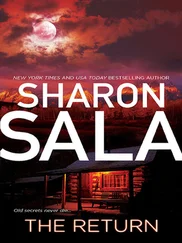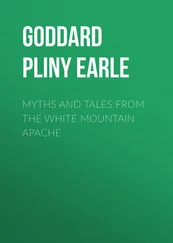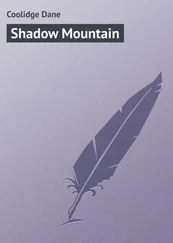“What I need is for you to pack for an undetermined stay in Montana. You will receive a packet tomorrow morning, including a plane ticket to a small town called Braden.”
Everything went through Jack’s mind, from militia-based groups to terrorists.
“Yes, sir. What am I facing?”
“Two days ago, a set of prints from a recent murder victim came through NCIC that didn’t match up with any we had on file. The body was discovered in Brighton Beach.”
“Isn’t that the place they call Little Russia?”
“Some do, I believe. The thing is…the prints rang a bell at Interpol. A really big bell.”
Suddenly the hair stood on the back of Jack’s neck.
“How big?”
“The prints belong to a Russian scientist named Vaclav Waller.”
“And?”
“Vaclav Waller died in a plane crash off the coast of Florida over thirty years ago.”
“Intense, fast-paced, and cleverly crafted.”
—Library Journal on Storm Warning
Also available from MIRA Books and DINAH MCCALL
STORM WARNING
THE RETURN
MIRA Books is also proud to publish Dinah McCall under her real name SHARON SALA
DARK WATER
White Mountain
Dinah McCall
 www.mirabooks.co.uk
www.mirabooks.co.uk
The miracle of life is just that—a miracle. From the hour of our birth to the moment we draw our last breath, we are living. Some of us are better at it than others, but it’s the only chance we are given.
Each life is unique only to that person. All the thoughts, all the emotions, all the failures and successes, can be shared to a degree, but it is impossible to share a soul. When it is gone, the shell that it inhabited is cast aside, as worthless as the box in which a jewel is carried.
Because I believe that we are given only one life, one time, I choose to dedicate this book to my loved ones who have already left this earth for a better place, and especially to my sister, Diane, whose passing cost me so many tears.
Save me a place beside you, honey.
I miss you more than words can say.
Chapter 1
Chapter 2
Chapter 3
Chapter 4
Chapter 5
Chapter 6
Chapter 7
Chapter 8
Chapter 9
Chapter 10
Chapter 11
Chapter 12
Chapter 13
Chapter 14
Chapter 15
Chapter 16
Chapter 17
Epilogue
Frank Walton was dying. He had suspected it for some time, but only last month his suspicions had been confirmed. And while he would have preferred to stay on this earth longer, he had accepted his fate just as he’d faced and dealt with every other adversity that had been thrust at him.
Deal with it, then get past it. That was his motto.
Or at least it had been until now. He would deal with his upcoming demise later. For now, uppermost in his mind had been the need to go home—to go back to the place of his birth and see the people and hear the language and the music. Just once. Before it was too late.
Only he couldn’t. To them, he was already dead.
Still, he’d had to know if what he’d done had been worth it. He’d needed to look at it again with a fresh view. Maybe then he would know if it had all been worthwhile.
But to do that, he’d had to leave Montana for the state of New York, then head to Brooklyn and Brighton Beach. It was as close as he could possibly come to his homeland—to eat the food of his childhood and hear the language of the place he’d called home. Now, after two weeks in Brighton Beach, he’d come to a grudging acceptance that it was too late to turn back time.
He exited the small café with a smile on his lips. The warm, dark-red borscht and savory bread he’d just had for his lunch had reminded him of the meals his mother had served during the short winter days and long cold nights in his Russian homeland. The food had been sparse but the love within his household overflowing.
Even though the September day was almost balmy, he knew if he would but close his eyes, he could recall every nuance of that time: his father sitting near the fireplace with his musette, smoking cigarettes that he’d rolled on his own and sipping vodka between songs, he and his brothers and sisters dancing wildly, mimicking the high kicks of a Cossack dance while his mother’s laughter rang out above the din.
Ah, God. He’d given it up—all of it—and for a higher cause. At least that was what he’d told himself for the past thirty-odd years. But now that he’d come to the end of his days, he was starting to question whether the sacrifices had been worth it. What had he accomplished? What had any of them accomplished?
A trio of gulls squawked noisily as they circled overhead, breaking Frank’s concentration. Squinting against the afternoon sun, he tilted his head, anxious not to miss their feats of derring-do as they dive-bombed the beach beyond the boardwalk. One did not see seagulls in Montana.
The sun was warm against his balding head. He inhaled briefly, then exhaled on a sigh, for the first time in his life, wishing he believed in a power higher than that of mortal man. Sunshine could not reach where he was bound.
A woman leaned out from a third-story window and yelled down into the street. A man just coming out of the building paused and looked up, then called back to her, their voices mingling with the sounds of traffic and people and the noise of the day. Steam from beneath the streets rose upward from the sidewalk grates, blending with the guttural mingling of vowels and consonants that made up the Russian language. It was all music to Frank Walton’s ears. He wanted to shout back—to sing the songs of his youth and dance until there was no more breath in his body. But he’d given up that part of his life too long ago. Not even now—when he was so close to his deathbed—could he take the chance and reveal his true self.
So he thrust his hands in his pockets and moved on down the street, satisfied for the moment just to be in this place.
Vasili Rostov cursed the ache in his knee as he stepped into an alcove away from the wind to light a cigarette. When the end caught and the tobacco began to burn, he took a deep drag and then held it, waiting for the nicotine to kick in. It came quickly, wrapping around his senses and easing the tension in his mind. He exhaled slowly, letting the smoke out through his nose as he turned. The old man he’d been trailing was still in sight. So he took another drag from the cigarette before he began to move, always staying at least a block behind. As he walked, his gaze moved from window to window, eying the opulence and abundance of that which was America. Not for the first time, he thought of staying. After the job was finished, of course. He loved his homeland, but the constant chaos in the government was disgusting to him—not like the old days. Then he’d been one of the youngest and best of Russia’s finest agents, revered in higher circles, and proud of his KGB status and the strength in his body. Women had fawned over him. Other agents had envied him. His superiors had depended on him.
Now he did nothing. They called it retirement. For Rostov, it was like being sent to an early grave. Even though he was in his mid-sixties, he was still strong. His belly was hard and flat, and the years had added character to his face rather than age.
Ironically, it wasn’t age that had sidelined him. It was his inability to keep up with the ever-changing modes of technology. These days, a good portion of the spy game depended upon understanding everything from lasers to computer chips, which left him out of the running. So his days were spent in taverns, reliving the past with others of his ilk, and the nights in his one-room flat, watching government-run television programs on a twelve-inch black-and-white set with the scent of a neighbor’s boiling cabbage and potatoes drifting in from the crack beneath his front door. Communism had been good to him and his family. It had made his country strong. With the coming of democracy, his world had crumbled as surely as the Berlin Wall. For several years afterward, people had stood in the streets selling personal belongings just to keep from starving. Homelessness had become rampant, and the long lines at bread bakeries and supermarkets were made even more tragic by the fact that there had been little food available to buy for those who still had money.
Читать дальше
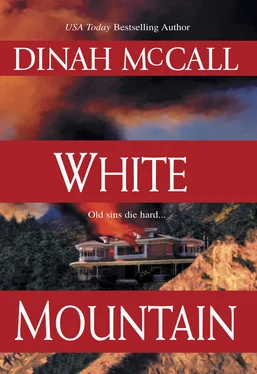
 www.mirabooks.co.uk
www.mirabooks.co.uk